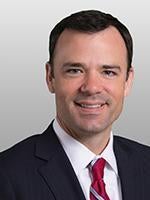With the announcement by Rep. Jason Chaffetz (R-Utah) that he plans to resign from Congress on June 30, it appears increasingly likely that Rep. Trey Gowdy (R-S.C.) will become the next Chairman of the House Committee on Oversight and Government Reform, the House’s powerful watchdog committee that has very broad investigative jurisdiction. Although a final decision on the next Chairman might not occur until early June, Mr. Gowdy’s selection could have broad implications for the Committee’s prominent role in oversight, including oversight of corporations and other private parties.
Mr. Gowdy, a former federal and state prosecutor, is one of the strongest questioners of witnesses in the House or the Senate. Unlike some others on the Oversight panel, Mr. Gowdy’s methodical interrogations are very similar to courtroom cross-examinations. One of his favorite techniques is to grill a witness about past statements, making the witness parse the meaning of individual words, like a trial lawyer undermining a witness’s credibility on the stand.
Because the Oversight Committee tackles some of the most high-profile and controversial issues in Congress, both parties recognize that special skills are needed to lead the Committee. Mr. Gowdy is widely recognized to have just those skills. In addition to his professional background as a prosecutor, Mr. Gowdy led the House’s Select Committee on Benghazi, which investigated the terrorist attack on the U.S. diplomatic mission in Libya, throughout its entire existence from 2014 to 2016. Mr. Gowdy earned praise from his colleagues in his handling of the Committee’s investigation, which included a marathon hearing with Secretary of State Hillary Clinton. To be sure, Mr. Gowdy also garnered his share of criticism from Democratic Members.
While Mr. Gowdy has proven he has the skills to be Oversight Chairman, the substantive issues on which he would focus is less clear. He is not known as a champion of any one particular topic. Mr. Gowdy has publicly pushed for Congress to take on more nonpartisan oversight, leaving behind what he has referred to as the “political subpoenas” that characterized investigations during the Obama Administration.
Mr. Gowdy’s relationship with the Democrats on the Oversight Committee will be important to the direction of the Committee. Current Chairman Chaffetz and the Ranking Democratic Member, Elijah Cummings, have an interesting relationship. Although they often clash in hearings, in the press, and in internal wrangling about the Committee’s priorities, they have also jointly signed a number of document request letters and permitted some breathing room on each other’s favored issues. For example, the Committee has conducted a number of investigations on pharmaceutical pricing, one of Mr. Cummings’s key priorities. Mr. Cummings was also the senior Democratic Member of the Benghazi Committee. Although their prior interactions show that they can certainly clash, they also know the areas where their interests might align. Whether bipartisan oversight increases under Mr. Gowdy’s leadership remains to be seen. Bipartisan oversight occurred more frequently during the Chaffetz-Cummings era than during earlier periods of the Committee’s history, and we generally think that trend will continue.
At times, the Committee has been criticized for flitting from topic to topic, conducting a large number of relatively high level investigations, with media interest often causing it to switch gears on short notice. If we had to bet, we think that, under a Gowdy chairmanship, the Committee will concentrate more methodically on a smaller set of deeper investigations. If that occurs, Mr. Gowdy could become one of the most influential chairmen of the Committee in many years.







 />i
/>i
